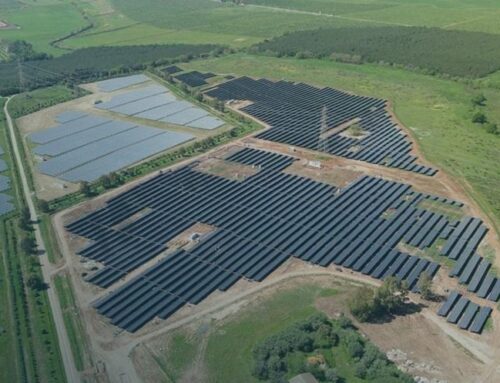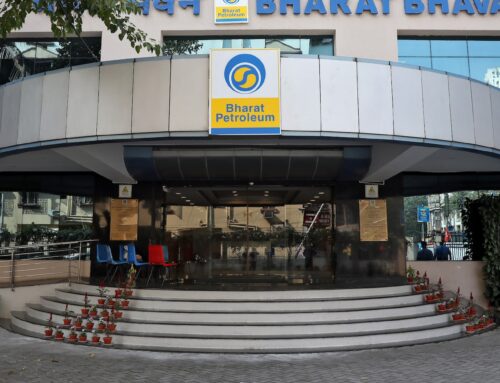Why Chobani’s Billionaire Founder Is Investing $1.2 Billion In A State-Of-The-Art New York
April 22, 2025
Hamdi Ulukaya has also committed another $500 million to expanding his operation in facility in Idaho—and says he is just getting started.
Chobani’s billionaire founder is going all-in on being American-made. CEO Hamdi Ulukaya broke ground this week on a new state-of-the-art facility in upstate New York that will produce one billion poundsof Chobani’s yogurts, creamers and other products. Ulukaya says he will invest $1.2 billion in all, and the plan comes just a month after he also revealed he is spending $500 million to expand Chobani’s plant in Idaho—and he says this is just the start.
“A lot of good food hasn’t been made accessible to all,” Ulukaya, 52, tells Forbes of the expansion. “And if you figure out how to make it accessible to all, the hardest part is how do you make sure that you actually have the manufacturing capability to do it.”
“We do everything in-house,” he continues. “A hundred percent of the products we make. It’s hard to do because that means plants.”
As America’s top-selling yogurt brand with $3 billion (annual revenue) and yogurt sales up 20% last year, Chobani is in a position most food companies would envy. Chobani, which acquired La Colombe coffee for $900 million in 2023, is one of the largest independent and privately held brands in the consumer packaged goods industry. And it’s made Ulukaya, an immigrant from Turkey who owns the majority of the business, worth an estimated $2.4 billion.
Now Ulukaya is using his clout to double down on the Northeast at a time when the region has faced an exodus of dairy farmers. Chobani and the New York governor’s office are calling the investment the nation’s largest in natural food manufacturing. The new plant will be financed through Chobani’s cash on hand. A Chobani spokesperson said “These projects are multi-year projects that do not require the company to take on any additional debt at this time.” In addition, incentives from New York state include $73 million in tax credits over ten years and $22 million from an economic development shovel-ready grant program, Fast NY.
The new facility will be designed to process up to 12 million pounds of milk each day, which means Chobani, already New York’s largest milk purchaser, will increase its spend by an estimated 6 billion pounds annually. That will be huge boon for the surviving dairy farmers in the region, many of whom have struggled as volatile prices and industry consolidation have driven many farms out of business, while major competitors like Danone have cut contracts or left the region entirely.
“Our region has really unique challenges,” says Gary Hirshberg, the founder of Stonyfield Organics, citing the Northeast’s higher costs for energy as well as feed for dairy cows. “Investment is badly needed. We’ve lost a lot of the dairy infrastructure. So any significant investment in upstate New York dairy, it’s only a good thing.”
But Hirshberg adds that sourcing additional conventional milk is “not really solving the problem” because the milk sells for such low prices. Organic milk is better for farmers, especially those in the Northeast where the farms are far smaller than on the West Coast, he notes, because farmers need the premium price that organic milk fetches to insure that a small family farmer can still make enough money to sustain their business and withstand shocks to the industry. And there’s currently an organic milk shortage. “That’s really where investment is needed,” he says.
Instead, Chobani has gone mass-market. When completed, the 1.4 million-square-foot facility in Rome, New York, will be capable of handling up to 28 production lines. Sitting on 150 acres across the site of the former Griffiss Air Force Base, the new plant will be Chobani’s second in the state and is expected to create 1,000 full-time jobs in the area.
“Big food has plants, infrastructure, all that stuff and that is very hard to build,” Ulukaya says. “We spend more time on the fundamentals of the business, which is making it. To make it to the next level, it’s about the fundamentals.”
These massive infrastructure investments mark a full circle moment for Ulukaya. Born to a Kurdish family of farmers in a small village in eastern Turkey, he grew up learning how his family made cheese and yogurt. In 1994, he immigrated to New York to study English, and his father later asked him to import the family’s feta cheese after realizing the poor quality of what was sold in the U.S. Ulukaya then started making and selling his own feta made in a small factory in upstate New York, but the business barely broke even.
The right idea struck in 2005, when the then-33-year-old Ulukaya randomly came across an advertisement for a fully stocked yogurt factory for sale in South Edmeston, New York (about an hour away from the new one). The then-84-year-old plant had been shut down by Kraft, and after a tour, Ulukaya was inspired to give it a new life. Against the advice of his lawyer, Ulukaya purchased the facility with a small business loan.
He spent two years perfecting his Greek yogurt recipe before shipping the first cases to a grocer on Long Island in 2007. From there, Chobani’s Greek yogurt quickly became a hit on shelves, thanks in part to its lower sugar and higher protein levels than the American-style yogurt popular at the time.
As Ulukaya pioneered a major shift in the yogurt aisle, competitors started rebranding their yogurt as Greek. But customers got confused. Poorly made products were ruining Greek yogurt’s reputation, and the over-saturation of brands made the situation worse. Yet Chobani persevered and maintained its customer base, coming out of the fray stronger for it.
Throughout that period, Ulukaya prioritized his New York manufacturing while building Chobani’s first Northwest operation with a $450 million plant in Twin Falls, Idaho in 2012, claimed at the time to be the world’s largest yogurt factory. Chobani had just surpassed $1 billion in annual revenue, and the expanded infrastructure gave Ulukaya the chance to focus on quality, while most of his competitors were turning to contract manufacturers selling off-the-shelf formulas.
“The fight I give as a founder is, how do I make sure that this is still entrepreneurial, but it has structures?” Ulukaya says.
As investing in infrastructure became key to Ulukaya’s strategy, it also became a crucial part of why Ulukaya has maintained majority control while avoiding bringing on many outside investors, as many prioritize short-term returns over longer-term investments in self-manufacturing. “This company is never going to be part of any other company. Never,” he says. “This company is built to serve for a long, long time delivering good food to the people.”
And now that Ulukaya has two major renovations ongoing at once—in Idaho and New York— his full vision is starting to come into view. “We could make all the advances in life, but if we can’t feed our children good food, that’s not a success,” Ulukaya says. “Chobani is tomorrow’s food company.”
More From Forbes
Follow me on Twitter or LinkedIn. Check out my website. Send me a secure tip.
Search
RECENT PRESS RELEASES
Related Post


